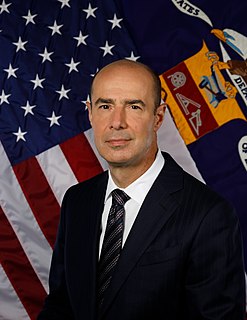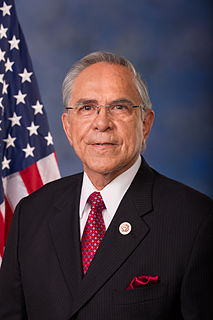A Quote by Tom Perez
Economically Targeted Investing, or ETI, refers to the practice of selecting investments, in part, for their collateral benefits in addition to the investment return for the retirement plan.
Related Quotes
Unlike return, however, risk is no more quantifiable at the end of an investment that it was at its beginning. Risk simply cannot be described by a single number. Intuitively we understand that risk varies from investment to investment: a government bond is not as risky as the stock of a high-technology company. But investments do not provide information about their risks the way food packages provide nutritional data.
At the heart of Erisa is the requirement that plan fiduciaries act with an 'eye single' to funding the retirements of plan participants and beneficiaries. This means investment decisions must be based solely on whether they enhance retirement savings, regardless of the fiduciary's personal preferences.
We believe that almost all really good investment records will involve relatively little diversification. The basic idea that it was hard to find good investments and that you wanted to be in good investments, and therefore, you'd just find a few of them that you knew a lot about and concentrate on those seemed to me such an obviously good idea. And indeed, it's proven to be an obviously good idea. Yet 98% of the investing world doesn't follow it. That's been good for us.

































